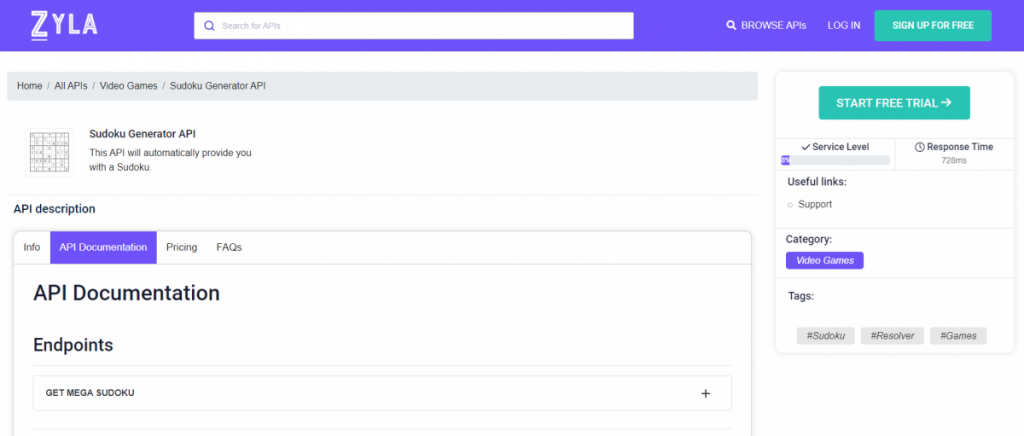Puzzles have been a source of entertainment and mental exercise for centuries, captivating minds across the globe. Among the many intriguing puzzles that have stood the test of time, Sudoku has emerged as a favorite among enthusiasts of all ages. With its simple yet challenging gameplay, Sudoku has become a global phenomenon, captivating millions of puzzle lovers worldwide.
The simplicity of Sudoku’s rules, coupled with its intricate patterns and logical deductions, made it a beloved pastime for puzzle enthusiasts. The game consists of a 9×9 grid, divided into nine 3×3 sub-grids. The objective is to fill in the empty cells with numbers from 1 to 9, ensuring that each row, column, and sub-grid contains every number exactly once. What makes Sudoku truly captivating is its ability to challenge players of varying skill levels, from casual solvers to seasoned experts.
In recent years, the game has seamlessly transitioned into the digital medium, opening up new avenues for its evolution and accessibility. One such advancement is the introduction of Sudoku Generator API, a powerful tool that allows developers to create and customize Sudoku puzzles with ease.

Introducing Sudoku Generator API
With the advent of the digital age, Sudoku found its way into computer programs, mobile applications, and online platforms, reaching a wider audience than ever before. The transition into the digital medium brought about numerous advantages, enhancing the puzzle-solving experience in several ways.
The digital medium provides interactive features that enhance the puzzle-solving experience. With just a few taps or clicks, players can effortlessly input and edit numbers, making the solving process more efficient and error-free. Additionally, digital Sudoku platforms often include built-in solving aids, such as highlighting duplicate numbers or providing hints, which can assist players in overcoming particularly challenging puzzles. These features make Sudoku accessible to a broader audience, including those who may be new to the game or need a little extra help along the way.
Sudoku Generator API takes the evolution of Sudoku in the digital age one step further. This powerful tool allows developers to integrate Sudoku puzzle generation capabilities directly into their applications, websites, or software projects. By leveraging the API’s functionality, developers can effortlessly generate unique Sudoku puzzles on the fly, tailor-made for their specific requirements.
Sudoku Generator API offers a range of customization options, allowing developers to control various aspects of puzzle generation, such as difficulty level and grid size. The API provides seamless integration with other systems and platforms, ensuring a smooth user experience. Developers can easily incorporate the Sudoku puzzles generated by the API into their applications, games, or educational tools, opening up new possibilities for engaging puzzle experiences.
How Does This API Work?
Sudoku Generator API is very simple in its function. The API generates Sudoku puzzles of varying difficulties (easy, medium, or hard), and of varying sizes, either a 16×16 board or a classic 9×9 board. The API will respond to the call with a Sudoku board in the specified format, containing the initial values and empty cells for the player to fill in. You can then present this puzzle to your users in your application or website, offering them an engaging and brain-teasing experience.
The raw output of the API looks like this:
{
"seed": "..7..639.2167395483.95..76.138925476694..7253725463819..369.1279.2351684.6..7.935",
"difficulty": "easy",
"candidates": [
[
"458",
"458",
"7",
"128",
"148",
"6",
"3",
"9",
"12"
],
[
"2",
"1",
"6",
"7",
"3",
"9",
"5",
"4",
"8"
],
[
"3",
"48",
"9",
"5",
"148",
"248",
"7",
"6",
"12"
],
[
"1",
"3",
"8",
"9",
"2",
"5",
"4",
"7",
"6"
],
[
"6",
"9",
"4",
"18",
"18",
"7",
"2",
"5",
"3"
],
[
"7",
"2",
"5",
"4",
"6",
"3",
"8",
"1",
"9"
],
[
"458",
"458",
"3",
"6",
"9",
"48",
"1",
"2",
"7"
],
[
"9",
"7",
"2",
"3",
"5",
"1",
"6",
"8",
"4"
],
[
"48",
"6",
"1",
"28",
"7",
"248",
"9",
"3",
"5"
]
],
"grid": [
[
".",
".",
"7",
".",
".",
"6",
"3",
"9",
"."
],
[
"2",
"1",
"6",
"7",
"3",
"9",
"5",
"4",
"8"
],
[
"3",
".",
"9",
"5",
".",
".",
"7",
"6",
"."
],
[
"1",
"3",
"8",
"9",
"2",
"5",
"4",
"7",
"6"
],
[
"6",
"9",
"4",
".",
".",
"7",
"2",
"5",
"3"
],
[
"7",
"2",
"5",
"4",
"6",
"3",
"8",
"1",
"9"
],
[
".",
".",
"3",
"6",
"9",
".",
"1",
"2",
"7"
],
[
"9",
".",
"2",
"3",
"5",
"1",
"6",
"8",
"4"
],
[
".",
"6",
".",
".",
"7",
".",
"9",
"3",
"5"
]
]
}How Can I Get This API?
Sudoku’s journey from pen and paper to the digital realm has brought about numerous benefits, making the game more accessible, adaptable, and enjoyable than ever before. With the introduction of Sudoku Generator API, developers now have a powerful tool at their disposal to create and customize Sudoku puzzles effortlessly.
This API opens up exciting opportunities for game developers, puzzle enthusiasts, and educational platforms alike, allowing them to harness the power of puzzles and provide engaging experiences to users worldwide. As Sudoku continues to evolve in the digital medium, we can look forward to a future where the joy of puzzle-solving is easily accessible to all. You can try this powerful API by following these instructions:

1- Go to www.zylalabs.com and search for “Sudoku Generator API“, then click on the “Start Free Trial” button to start using the API.
2- Register and choose the plan that suits you best, you can cancel it whenever you want, even at the end of the free trial.
3- Once you find the endpoint you need, make the API call by clicking the “run” button and you will see the results on your screen. You can also choose the programming language of your choice and the response will be given in the friendly JSON format.

